Shakeel Badayuni, as the name suggests, was born in the UP town of Badaun in 1916. His father wanted to give him a classical education and arranged tutors to teach him Arabic, Urdu, Persian and Hindi. Young Shakeel attended Aligarh University in the 1930s, which was at the forefront of political ideologies. He was strongly
inspired by the charged atmosphere. He soon started making a name for himself in mehfils and mushairas. It’s said composer Naushad heard him in one such mushaira and counselled him to write lyrics for films. Naushad recommended him to AR Kardar, who signed Shakeel for the film Dard (1947). Afsana likh rahi hoon, sung by Uma Devi (actress Tun Tun) from the film proved to be hugely successful. Naushad and Shakeel soon became friends. Shakeel could sing and Naushad wrote poetry and the duo shared a bond as they understood each other’s art. Naushad almost never worked with any other lyricist till Shakeel’s death in 1970 due to tuberculosis. The other music directors he gelled well with were Hemant Kumar and Ravi. Shakeel won three Filmfare Awards back-to-back, for Chaudhvin Ka Chand (1960), Gharana (1961) and Bees Saal Baad (1962). Ironically, the first two were composed by Ravi while the latter was composed by Hemant Kumar. He never won a Filmfare with Naushad, despite their long association. Replaying Shakeel once again...
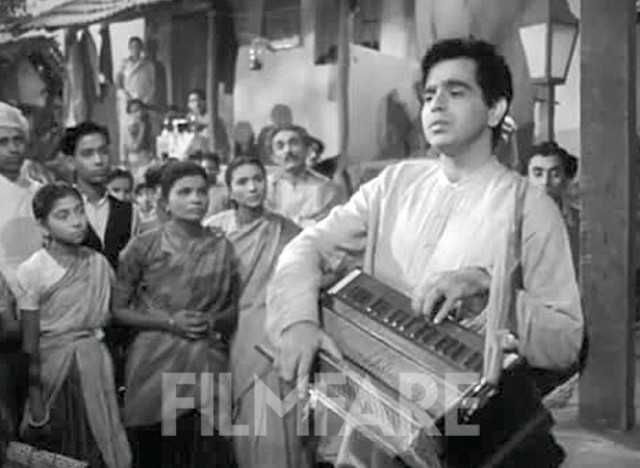
Deedar (1951)
Dilip Kumar played a blind singer in love with Nargis in this tragedy. The Shamshad Begum-Lata Mngeshkar duet, Bachpan ke din bhula na dena, also reprised by Rafi still spells magic. The other memorable ditties are Hue ham jinke liye barbad sung by Rafi and the Rafi-Lata duet Dekh liya maine kismat. The songs, composed by Naushad, spoke of unrequited love and longing for bygone days and were true to the film’s motif.
Mela (1948)
This love story revolving around star-crossed lovers may sound melodramatic today but its songs are timeless. Shakeel brought alive Naushad’s compositions and showcased his virtuosity in songs such as the romantic Gaaye ja geet milan ke (Mukesh), the pathos-filled Yeh zindagi ke mele (Mohammed Rafi) and the Shamshad Begum-Mukesh duet, Main bhanwra tu hai phool.
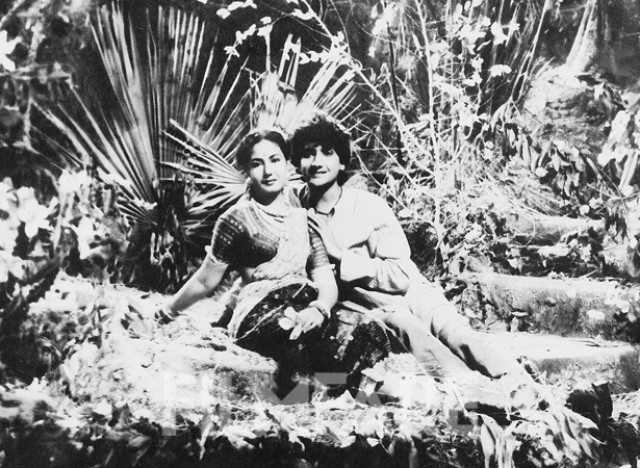
Baiju Bawra (1952)
Naushad longed to bring India’s musical heritage to film and Baiju Bawra, based on a musical duet between legendary singers Tansen and Baiju gave him that chance. Shakeel’s challenge was to write in an approximation of the 16th century Hindi. He wrote the immortal Man tarpat Hari darshan ko aaj bhajan (raag malkauns), sung by Rafi, Aaj gawat man mero (raag desh), where Ustad Amir Khan gave vocals with another great singer DV Paluskar, and the evergreen Tu ganga ki mauj (raag bhairavi), sung by Rafi. All 13 songs were raag-based and are considered gems today.
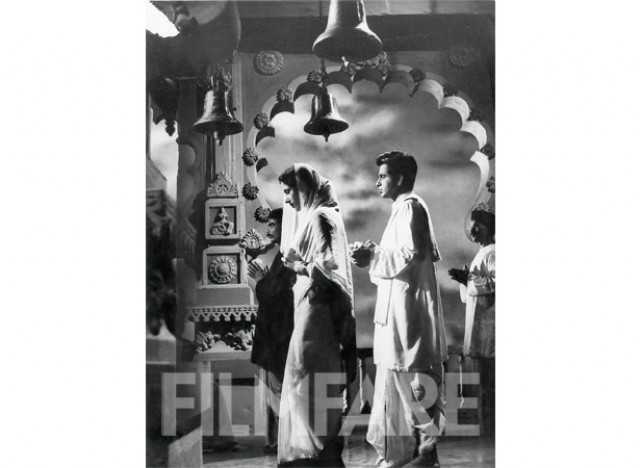
Amar (1954)
Shakeel, Rafi and Naushad were the forces behind another immortal bhajan, Insaaf ka mandir hai yeh, bhagwan ka ghar hai. The song was used throughout the film to highlight the mental state of the guilty protagonist. The poet in Shakeel reached a new height when he wrote the song that glorified pain - Na milta gham to barbadi ke afsane kahan jaate. He seemed to suggest that even sadness has its place and purpose in the journey of life. In fact, it only leaves you enriched. If Lata excelled in the poignant rendition, she made the lighthearted Udi udi chaayi ghata jiya lehraye her own as well.
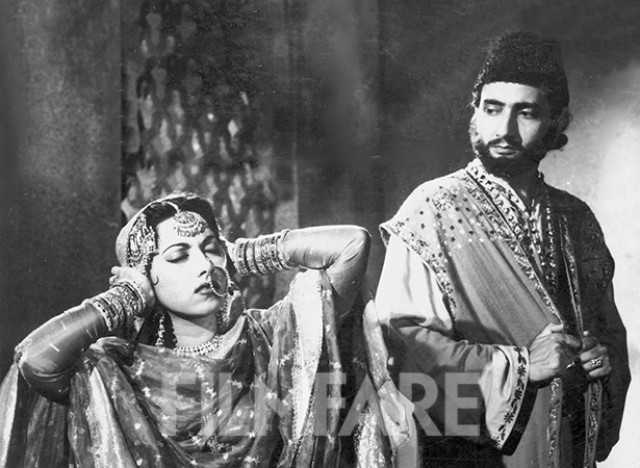
Mirza Ghalib (1954)
One wonders why composer Ghulam Mohammed wanted another lyricist in this biopic where most songs were composed on Ghalib’s ghazals. Shakeel wrote folk-based songs like Ganga ki reti par bangla chhawai de sung by Sudha Malhotra and Chali pee ke nagar sung by Shamshad Begum.
Uran Khatola (1955)
This Naushad produced film can be said to be Hindi cinema’s first first sci-fi film, where the hero’s plane crashes and he finds himself in a land ruled by women. The dirge Chale aaj tum jahan se, hui zindagi parai, sung by Rafi, is rated among the top tragic songs of all time. It’s an assertion of the eventuality of death and separation in a subtle way. Lata’s frothy Dil ka salaam le jaa and Rafi’s romantic, Mohabbat ki rahon mein chalna sambhal ke too are still hummed today.
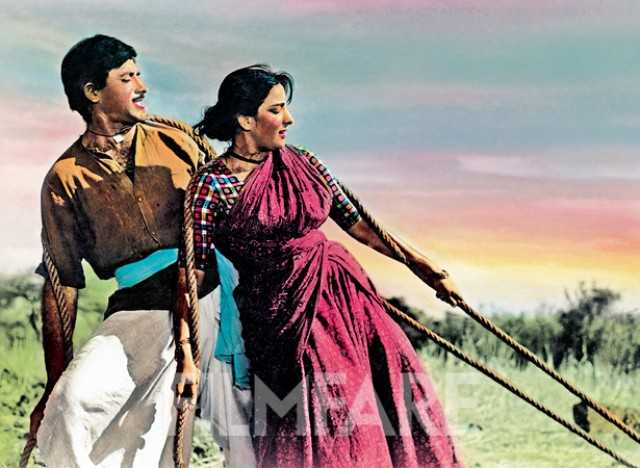
Mother India (1957)
Director Mehboob Khan’s homage to Indian womanhood was set in rural India and demanded songs that carried a rustic fragrance. Both Naushad and Shakeel rose to the challenge and produced songs such as the flirty Gaadiwaale gaadi dheere hankh re sung by Rafi and Shamshad Begum, the Holi song, Holi aayi re kanhai by Shamshad Begum, the pastoral Dukh bhare din beete re bhaiya sung by Shamshad Begum, Rafi, Manna Dey and Asha Bhosle and the philosophical Duniye mein hum aayein hai to jeena hi padega by Lata and sister Usha Mangeshkar. The 12 songs not only showcased the different flavours of village life but also were instrumental in taking the narrative forward.
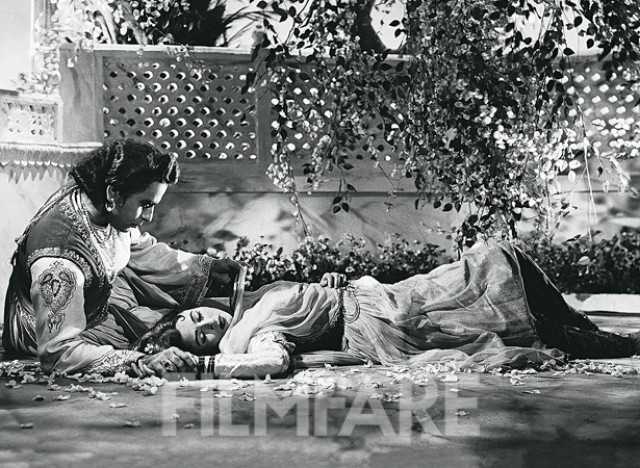
Mughal-e-Azam (1960)
This musical was based on the fictional romance between prince Salim and courtesan Anarkali and director K Asif wanted to showcase the Moghul splendour in all its glory. Shakeel’s songs carried the flamboyance of the era. The lyrics of the iconic Pyar kiya to darna kya, picturised in the palace of mirrors, were rejected draft after draft by Naushad. It’s said after a whole night’s session, Shakeel asked Naushad for a sampler. The composer recited a UP folk song, Prem kiya, kya chori kari hai. That led to the immortal ghazal sung by Lata.
A Janmashtami bhajan, Mohe panghat pe, was added to highlight Akbar’s secular roots. Other gems from the 12 songs - some 20 were said to have been recorded - included the qawwali, Teri mehfil mein kismat aazmakar ham bhi dekhenge, sung by Lata and Shamshad, the paean to love Zindabad, zindabad, the spiritual Bekas pe karam kijiye by Lata and the classical Prem jogan ban ke and Shubh din aayo raj, sung by Bade Ghulam Ali Khan, who reportedly took an enormous fees of Rs 25,000 for the song.
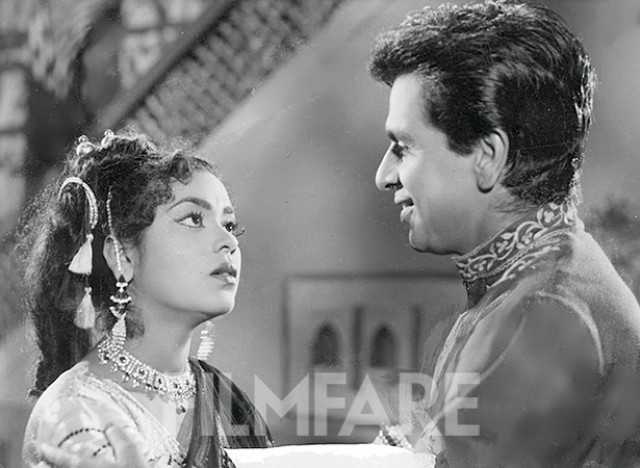
Kohinoor (1960)
Shakeel wrote a fast paced classical bhajan, Madhuban mein Radhika naache re, sung by Rafi and composed by Naushad. Dilip Kumar is said to have learned the sitar to seem authentic while playing it in the song. Other memorable romantic numbers include the duets Do sitaron ka zameen par hai milan and Koi pyar ki dekhe jaadugari, sung by sung by Lata and Rafi.
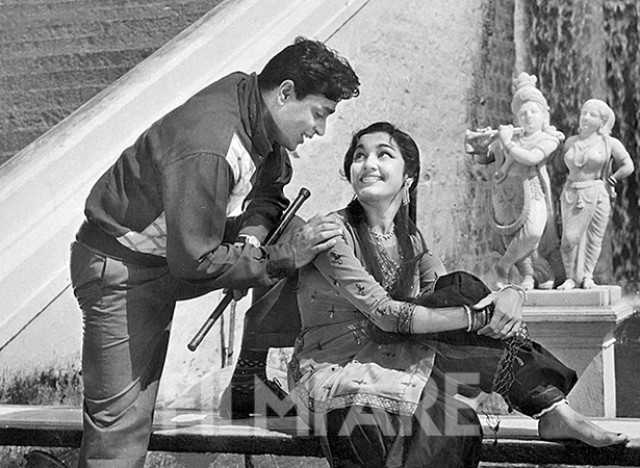
Gharana (1961)
In Gharana, he partnered with Ravi and came up with memorable songs like the evergreen children’s classic Dadi amma dadi amma maan jaao, sung by Asha Bhosle and Kamal Barot, the beautiful bhajan, Jai Raghunandan, jai Siyaram and the ghazal, Husnwale tera jawab nahin.
Gunga Jumna (1961)
This dacoit film was based in the Hindi heartland and Shakeel lyrics and music by Naushad brought in a folk flavour. It’s unbelievable that songs like Nain lad jainhe sung by Rafi, Do hanson ka joda bicchad gaya re sung by Lata, the duet, Dhoondho dhoondho re saajna, sung by Lata and Rafi were written by a poet steeped in Urdu tradition. He also wrote another great bhajan, Insaaf ki dagar pe, baccho dikhao chal ke, sung by Hemant Kumar, which has become a school anthem of sorts.
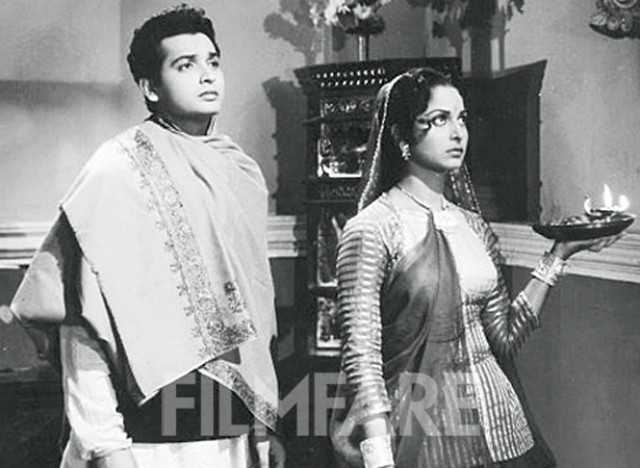
Bees Saal Baad (1962)
Shakeel collaborated with Hemant Kumar on this whodunit and his break from Naushad led him to explore his creativity in new ways. The duo came up with gems like the haunting Kahin deep jale kahin dil, sung by Lata, the frothy, Zara nazron se keh do ji and Beqarar karke hame yun na jaiye, sung by Hemant himself as also the fun-filled Sapne suhane ladakpan ke, sung by Lata.
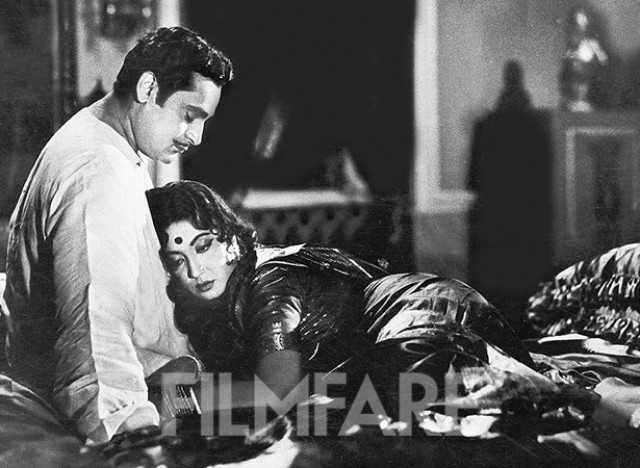
Sahib Bibi Aur Ghulam (1962)
Shakeel teamed up with Hemant Kumar for the film and had to compose the Rabindra Sangeet inspired tunes favoured by Hemant. He was equal to the task and wrote pathos-filled lyrics that brought forth Choti bahu’s pain - Na jao saiyan chhuda ke baiyan, sung by Geeta Dutt, her desire for her husband - Piya aiso jiya mein, sung again by Geeta Dutt. Ironically, while Geeta Dutt sang these songs of yearning, rumours of her husband Guru Dutt’s link-up with heroine Waheeda Rehman were strong. The poignant Meri baat rahi mere man mein and the effervescent Bhanwara bada nadan haay were sung by Asha Bhosle.
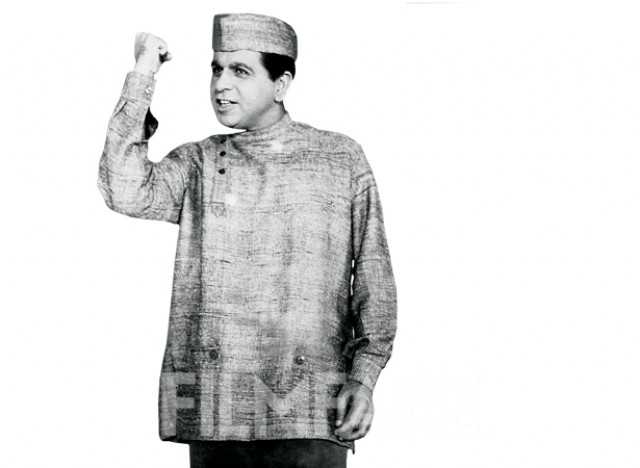
Leader (1964)
The film was a political satire but had a patriotic number - Apni azadi ko hum hargiz mita sakte nahin, sung by Rafi – a response perhaps to the Chinese aggression, which had occurred two years ago. Other gems included Mujhe duniyawalon sharabi na samjho by Rafi, the Lata-Rafi duets, Ek shahenshah ne banwa ke haseen Tajmahal,Tere husn ki kya tareef karoon and the Asha Bhosle dance number Daiya re daiya laaj mohe lagi.
Dil Diya Dard Liya (1966)
Based on Wuthering Heights, the film is known for its tragic songs like Koi saagar dil ko behlata nahin, where Rafi brought out the intoxication of pain, Guzare hain aaj ishq mein, which spewed revenge, and Dilruba maine tere pyar mein kya kya na kiya, which scorns the beloved - both sung by Rafi. It also had Lata’s paean to lost love, Phir teri kahani yaad aayi. To balance it all Shakeel and Naushad came up with the breezy Sawan aaye, ya na aaye, based on raag shuddh sarang, sung by Asha and Rafi.
Ram Aur Shyam (1967)
The first film with Dilip Kumar in a double role, this comedy had Shakeel writing the exquisite ghazal, Aaj ki raat mere sung by Rafi, one of the most romantic songs to be filmed on Dilip. It also had the lighthearted title song, Aayi hai baharein mite julmon sitam, perhaps a first in Shakeel’s and Naushad’s career.
Sunghursh (1968)
The film was about a family feud in small town UP. Shakeel wrote an authentic folk song, Mere pairon mein ghungroo bandha de, sung by Rafi, where a 40 plus year Dilip Kumar boogied like a teenager. The soft romantic ghazal, Jab dil se dil takrata hai sung by Rafi, is still hummed. It was Naushad’s and Shakeel’s last collaboration for
Dilip Kumar.